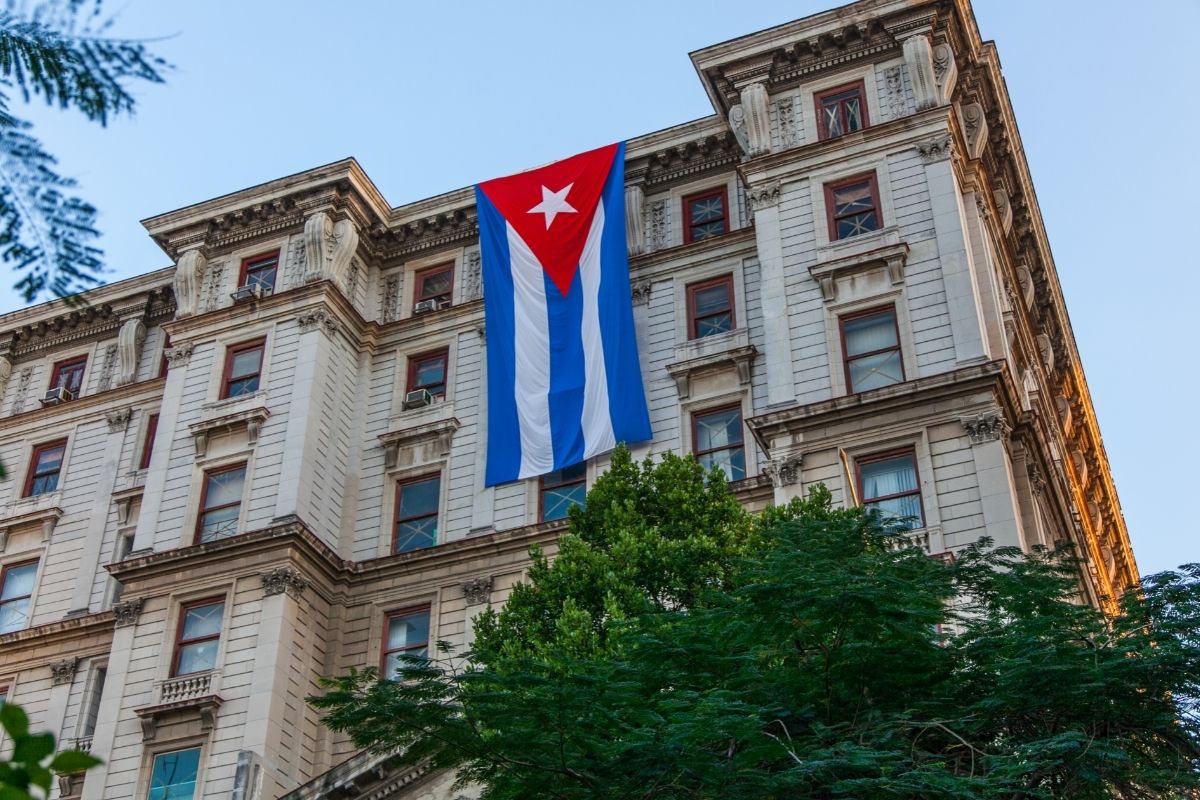Cuba is a vibrant and exciting location. It’s also a place with a lot of history, with spells of political and social unrest over the years. Because of this, there’s a lot of misinformation out there about this part of the world.
To help you get a better understanding of what Cuba is really like and what you should expect if you go on vacation here, we’re going to put the misconceptions and myths about Cuba to bed once and for all.
Myth #1 – Americans aren’t welcome in Cuba
Let’s start with the biggest myth of them all; Americans aren’t welcome in Cuba or that Cubans don’t like Americans!
Every year, millions of Americans travel to Cuba, with both indirect and direct flights available.
While there may have been hostilities in the past due to America invading Cuba, it’s important to remember that this happened over six decades ago!
If you’re American and wondering whether you should go to Cuba on vacation, you’ll certainly be welcome with open arms.
Myth #2 – There’s no internet access in Cuba
While this may have been the case a few years ago, it’s certainly not the case anymore. Yes, the internet may not be as widespread as it is in the United States, but it’s not difficult to find either.
We’re seeing more and more public Wi-Fi zones pop up across the country. All you need to do is head to a local kiosk, purchase an access card, and you’ll have one hour of internet use. Just purchase new cards as and when they’re needed.
Myth #3 – No one speaks English
Another one of the common myths about Cuba is that nobody speaks English. If you’ve been scared to visit Cuba because you don’t speak Spanish, don’t worry. Yes, foreign influences have been kept to a minimum in Cuba. However, there’s always been a large number of locals who can speak English.
The growing tourist trade means learning English is a valuable skill. As a consequence, more and more people are learning English as a second language here.
In popular tourist areas, you’ll sometimes see signage in English. The same goes for restaurant menus. If you’re visiting a rural area, learning some basic Spanish pleasantries will certainly go a long way.
Myth #4 – Havana is a dangerous place
When visiting any big city, it’s important to have your wits about you. Pickpocketing, for example, is a big issue in a lot of larger cities, such as London or Paris. Generally speaking, though, most people feel very safe in Havana.
Unlike the U.S., it’s not legal to own guns in Havana, which can bring many tourists comfort. Most people also feel completely safe walking around on their own and exploring the city.
Myth #5 – Cubans don’t really drive classic cars
You’ve probably seen a lot of images of Cuba containing classic vehicles, like the photograph below. Many people assume that these cars are purely for tourism brochures, and that they’re not a part of daily life in Cuba. Well, think again!
It won’t take you long to spot a classic car in Cuba. They’re everywhere! Plus, they’re used for virtually everything too, including taxis, ambulances, and buses.
After the revolution in 1959, importing new cars to the island was not an easy task. Because of this, for the last six decades, Cubans have pretty much depended on whatever cars were left lying around. This is why there are so many classic cars in the country.
So, if you want to have a traditional and fun experience while you’re in Cuba, riding around in a classic car should definitely be on your bucket list.
Myth #6 – You’re not allowed to bring rum or cigars back to the US
For more than five decades, the American Government prevented U.S. residents from purchasing Cuban products, including the island’s famous rum and cigars. Many Americans found this incredibly frustrating, as they wanted to bring some of Cuba’s favorite traditional treats home. Well, the good news is that you now can!
Today, travelers from all over the world, including American, can legally bring rum and cigars back from Cuba.
In fact, the regulations are nowhere near as stringent as you’d expect. Here are the rules you need to follow:
Rum
- The rum needs to be in a sealed duty free bag or in your checked luggage to travel on an airplane. There are different rules for cruise ships.
- The Cuban Customs website indicates there is a limit of three bottles of rum per person, yet there are no details of this on the English version of their website.
Cigars
- If you are traveling to the United States, you’ll need to pay import taxes on over 100 cigars or $800’s worth
- Cuban customs will tax cigar purchases amounting to $5,000 or greater
- Cuban customs will demand an invoice for exports of 50 or more cigars
Myth #7 – The food is disgusting
Cuba may not be known as a foodie destination, but this certainly doesn’t mean that the food is of a poor quality.
Now, there are a few things to keep in mind! Firstly, there’s not much variety with every meal. Most dishes are served with beans and rice. Also, Cubans don’t tend to add a lot of spices to their food. They appreciate the natural flavors of the produce.
However, don’t let this fool you into thinking the food is bland. Some of the local favorites are delightful, including Moros y Cristianos, Vaca Frita, Platanos Maduros, and Rope Vieja.
Myth #8 – All Cubans want to leave Cuba
Yes, a lot of Cubans have left the country and moved to other locations, particularly the United States. However, there are plenty of people that have stayed put.
If you speak to Cubans that have moved, you’ll find that the vast majority have moved for economic reasons and they probably wouldn’t have done so if they had more opportunities in Cuba.
If they had the choice, a lot of Cubans would prefer to live in Cuba with money than chase any sort of American Dream.
Don’t believe everything you hear or read; debunking common myths about Cuba
So there you have it; some of the most common misconceptions and myths about Cuba! We hope that this post has helped you to get a better understanding of what Cuba is really like.
If you’re planning on visiting this part of the world on vacation, you’ll certainly be in for a real treat!
- The Art of Cuban Poster Design: History, Techniques, and Cultural Significance - May 23, 2023
- Taking A Vintage Car Tour In Havana - May 23, 2023
- Top 5 Cuban Revolutionary Sites - May 23, 2023








